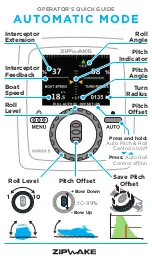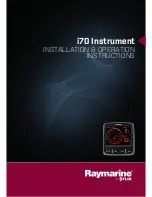
Chapter 4 — The QuadStat
57
, in the QuadStat Control Window,
except that adjustments can be made while recording is in progress.
It is also possible to automate the QuadStat Potential controls with the
Macro feature of Chart so that the working electrode potentials can be
altered at predetermined times. Please consult the
Chart Software
Manual,
installed in the eDAQ Documentation folder on your hard disk,
for more information about the use of Macros.
Maintenance
Your QuadStat will not require maintenance during daily operation.
However, you should periodically check the QuadStat for optimum
results by applying a known potential, E, to the Dummy Cell. Open the
QuadStat Control window,
or
. and go to
Dummy Cell mode. The current signal, I, should obeys Ohm’s law:
I = E/R
where R is the resistance, and is 10
5
ohm for the dummy cell, and E is
the applied potential. Thus a signal of 10 μA should be obtained when
a potential of 1 V is applied. Try several different potentials and make
sure an appropriate current signal is observed. Repeat this procedure
on the different QuadStat channels. If this test produces the expected
results then your QuadStat is likely to be functioning correctly.
Also periodically repeat this procedure with the electrode cables
connected, and attached to a test resistor, as described in the section
on
. If the current signal does not obey Ohm’s law,
then first recheck your connections of the QuadStat to the
e-corder
,
. If the problem persists then it is possible that the electrode
leads or the QuadStat itself has become damaged.
If these tests indicate that the QuadStat is working correctly, but you are
still experiencing difficulties with your experiments, then you should
now check the electrodes you are using, the connections to them, and
the design and condition of the reaction vessel, and any salt bridges
that you are using.
Содержание e-corder
Страница 62: ...58 eDAQ Potentiostats ...
Страница 88: ...84 eDAQ Potentiostats ...
Страница 94: ...90 eDAQ Potentiostats ...
Страница 102: ...98 eDAQ Potentiostats ...
















































